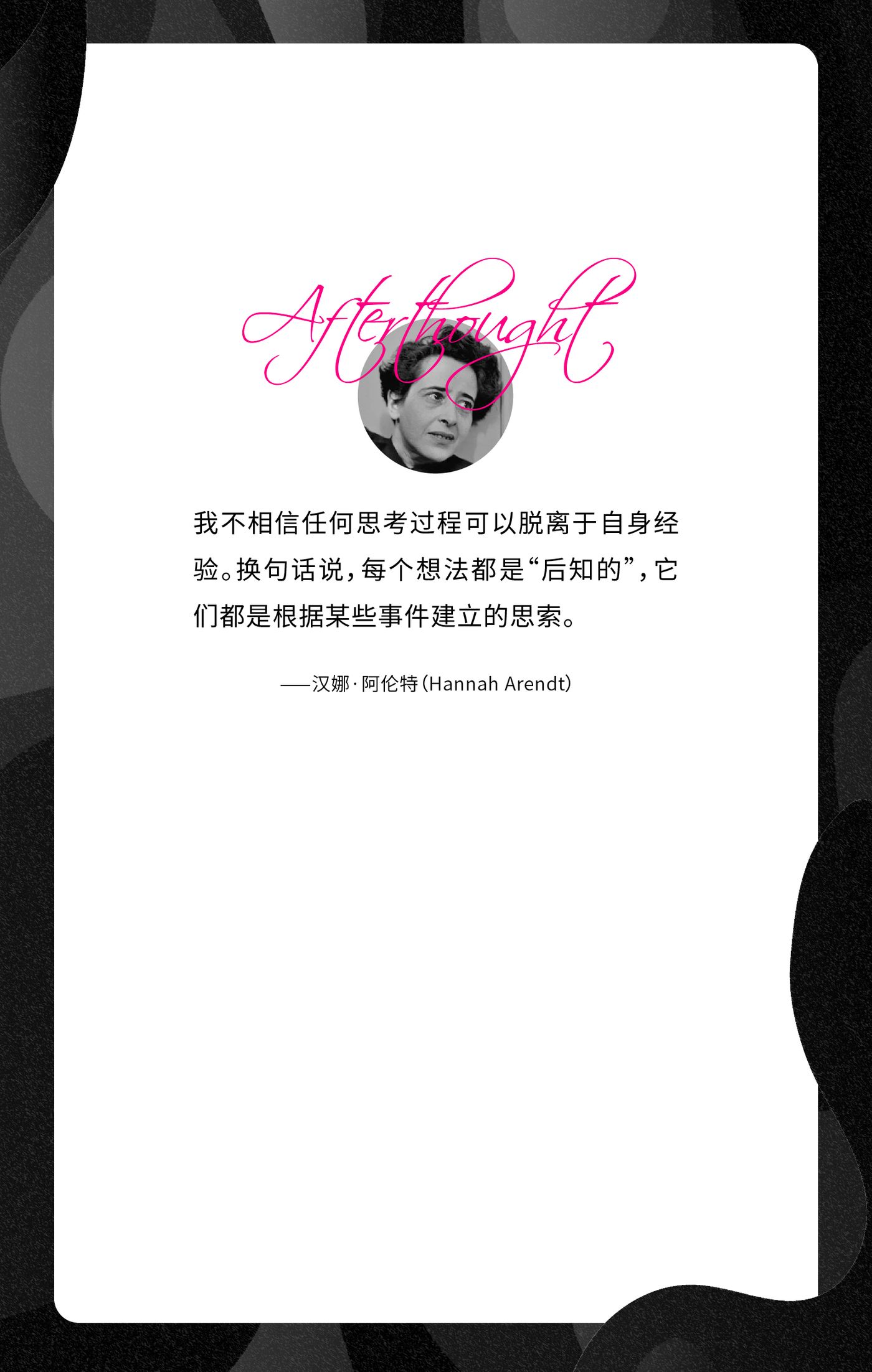A sincere work that does not rely on "grand theories" to decorate itself
Let's start with an inspiring conversation:
- Gaussian: To what extent are your philosophical insights a thought process driven by your own experiences? - Arendt: I don't believe that any thought process can be divorced from one's own experience. In other words, every thought is "hindsight", they are speculations based on some event. (That is, every thought is an afterthought, a thought on some matter.) I myself live in a modern society, and obviously my personal experience is all about this modern society. This point has also been raised by many other thinkers. ——Hannah Arendt in conversation with Gunter Gaus, 1964, titled What Remains?
For Arendt, a thinker's opinion solidified into words must come from his own thinking, and thinking must come from his own experience.
Sincere creation, or real work, must dissolve the creator himself in it, making the author a participant in his own fictional scene. In this case, the insights of "great philosophers" and "great theorists" will support and deepen the work; these predecessors will become the creator's "thinking companions" (rather than thinking substitutes), helping him to promote A step from thinking to expressing.
However, if the creator just goes through the insecurities due to the lack of theory after the work has been completed, and rationalizes his creation with a seemingly "high-level theory", then this has to be reduced to laziness of thinking, and to some A narrow appropriation of philosophical insights. From another point of view, these exquisite shells must not be able to replace the linkage and continuity from "self-experience" to "self-thinking" to "real works". Sadly, this kind of citation, or forced citation, of theorists has become part of a fierce and useless competition among creators.
Creation, learning or thought must come from the "life and action" of young people themselves. History, knowledge and theories of predecessors are of course necessary, but their status is after "life and action". History exists to give the former a more testable spiritual power and to make the former more profound. thinking.
For architects, a sincere plan should be based on the feeling of one's own life, it is the malleable concern for the world in which they live; the development of all these thinking, expression and creation should not come from academics who wear high theoretical hats. vanity. Every thought is an afterthought, if you haven't experienced it, you don't have to force it; if you haven't thought, you don't have to force it to talk. Otherwise, the architectural society will become a smeared philosophy and history, and more people will call it metaphysics with dissatisfaction.

Like my work? Don't forget to support and clap, let me know that you are with me on the road of creation. Keep this enthusiasm together!

- Author
- More